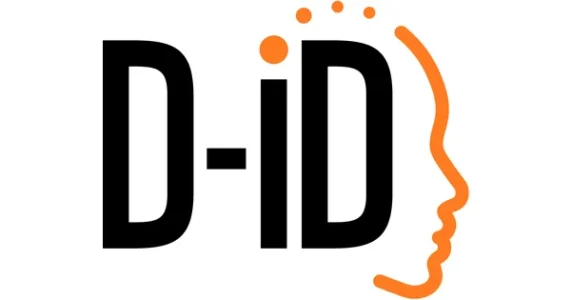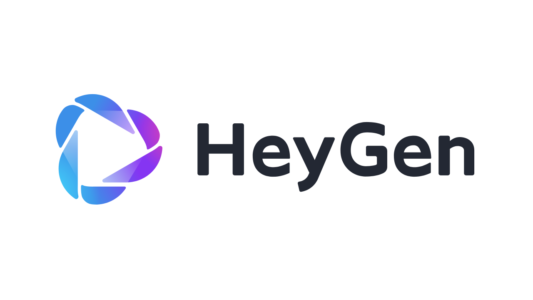Amidst the overwhelming information and privacy concerns that characterize this digital era, effective management of digital identities has become a sine qua non. Robust solutions to protect personal data while enhancing smooth online interactions concern many firms and individuals.
D-ID and Heygen are among other competitors in this area. This article will explore some features, similarities, and differences.
D-ID Overview
D-ID, which stands for de-identification, is one of the leading suppliers of privacy-enhancing technology. Fundamentally, D-ID’s speciality is protecting individual privacy by anonymizing images.

Utilizing advanced algorithms, Facial images can be transformed by D-ID so that they still appear human to human eyes but cannot be recognized by face recognition systems. This technology has numerous applications across various fields, such as the healthcare industry, security, and social media.
Heygen Overview
Heygen takes a bigger-picture perspective on digital identity management, focusing on self-sovereignty and user empowerment.

However, individuals can claim ownership over their identities and personal data rather than concentrating only on image de-identification like D-ID.
Heygen supports secure and verifiable interactions within decentralized technologies like blockchain while preserving privacy and autonomy.
Similarities between D-ID and Heygen
Despite their differences in approaches, there are several things every day between these two companies:
Privacy Focus
Both organizations put a high emphasis on privacy protection in their solutions. These platforms were created for image de-identification or self-sovereign identity management, thus helping people or institutions to protect their online identities.
Technological Innovation
Both companies utilize state-of-the-art innovations such as machine learning, blockchain, or cryptography to improve confidentiality, integrity, and user control to address contemporary issues related to managing digital identities.
User-Centric Design
Both D-ID and Heygen platforms are user-friendly and intuitive, offering seamless interactions. These approaches help increase the adoption of their products, increasing user confidence and satisfaction.
Differences between D-ID and Heygen
Although they have some common objectives, D-ID and Heygen differ concerning scope, architecture, and target audience:
Scope of Application
While D-ID primarily focuses on image de-identification and privacy preservation, its technology is most applicable for maintaining privacy. At the same time, visual information is shared, such as healthcare applications or security-related software.
On the contrary, Heygen provides a broader range of identity management solutions, including self-sovereign and decentralized authentication. Therefore, it can appeal to those individuals who want greater control over their digital identities across different contexts.
Technological Architecture
The architectural differences in D-ID as opposed to Heygen could be pretty significant depending on the specificities of their focus areas and goals.
D-IDs are designed for image processing and de-identification, while Heygen’s iHeygen’sninfrHeygen’sreon blockchain technologies or decentralized protocols.
Target Audience
Industries like healthcare or security may be more inclined towards using D-ID if concerned about image privacy. In turn, users seeking comprehensive digital identity management solutions with data sovereignty will find these offered by Heygen.
Use Cases and Applications
The impacts of both companies have been felt across several industries:
Healthcare
D-ID’s image de-identification technology in healthcare settings can protect patient privacy in medical imaging and telemedicine applications.
Conversely, self-sovereign identities from Heygen enable patients to securely authorize access to their electronic health records while maintaining their autonomy.
Finance
Heygen can simplify KYC for the financial industry while reducing fraud and improving compliance. In addition, D-IDs’ de-identification of images can also be used to secure authentication for online banking and payment systems.
Social Media
D-ID can anonymize facial photos on photo-sharing sites to retain visual content while protecting people’s privacy. Heygen’s self-sovereign identity solutions provide users with data control on social media.
Challenges and Limitations
Nevertheless, some of these challenges may arise from the implementation of such D-ID and Heygen solutions:
- Technological Complexity: Integrating complex technologies like machine learning or blockchain requires expertise and resources.
- Interoperability: Ensuring smooth data exchange and compatibility with existing systems poses problems.
- Regulatory Compliance: Observing privacy laws and data protection rules requires careful thought to do so legally.
Future Outlook
The future looks promising for digital identity management:
- Emerging Trends: Advances in biometrics, cryptography, and decentralization will continue fueling innovations in digital identities.
- Standardization and Interoperability: Common standards and protocols will facilitate interoperability across platforms and sectors.
- User-Centric Design: Future digital identity solutions will be driven by empowering users with more control over privacy, security, and usability, among others.
Price Comparison Chart
| Feature | D-ID | Heygen |
| Trial | $0/month | $0 (Billed yearly) |
| Free 14 days trial | No Credit Card Needed | |
| Up to 5 minutes of video | 1 Free Credit | |
| Agents: up to 10 sessions • For Limited Time | Non-commercial Terms | |
| Lite | $4.7/month (Billed annually at $56) | $24/month (Billed yearly) |
| 40 credits | 15 credits per month (180 Credits per Year) | |
| Up to 10 minutes of video | Fast Video Processing | |
| Agents: up to 11 sessions • For Limited Time | 3 Instant Avatars | |
| Personal License | General Commercial Terms | |
| D-ID Watermark | Everything in Free | |
| Silver Support | 1 Seat | |
| Standard Presenters only | Premium Voices | |
| 50 AI Presenter Prompts | Auto Captions | |
| Pro | $16/month (Billed annually at $191) | $120/month (Billed yearly) |
| 60 credits | 30 credits per month (360 Credits per Year) | |
| Up to 15 minutes of video | Faster Video Processing | |
| Agents: up to 70 sessions • For Limited Time | 4k Resolution | |
| Commercial License | Brand Kit | |
| AI Watermark | Team Collaboration | |
| Gold Support | Multi-seat | |
| Premium & Standard Presenters | ||
| 100 AI Presenter Prompts | ||
| 1 Embedded Agent | ||
| 1 Cloned Voice | ||
| Advanced | $108/month (Billed annually at $1Let’s | Let’s Talk (Custom Plans) |
| 400 credits | Custom Credit Limits | |
| Up to 100 minutes of video | Fastest Video Processing | |
| Agents: up to 530 sessions • For Limited Time | API Access | |
| Custom Watermark | Account Manager | |
| Premium Support | Studio Avatar Paid Add-on Available | |
| 600 AI Presenter Prompts | SAML/SSO | |
| 3 Cloned Voices | Customized Solutions | |
| EnLet’sise | Let’s Talk (Customized Plans) | |
| Customized minutes of video | ||
| Agents: Customized Sessions | ||
| Custom Logo | ||
| Dedicated Support Manager | ||
| Unlimited AI Presenter Prompts | ||
| Multiple Embedded Agents | ||
| Professional Voice Cloning | ||
| Canva Plugin | ||
| PowerPoint Plugin | ||
| Google Slides Plugin | ||
| Custom HQ Presenters | ||
| Multiple Account Seats |
Conclusion
In the ever-changing world of digital identity management, D-ID is a brand that protects user information through privacy preservation. Heygen covers a broader perspective regarding self-sovereign identity administration than just image de-identification as D-ID does.
Knowing how they differ and correlate, individuals or companies may make rational choices that can assist them in improving privacy, safety, and independence over personal lives in the computer era.
FAQs
1. What is meant by digital identity management?
This refers to handling personal information about someone online, i.e., securing their online identity. This term encompasses a range of technologies and practices aimed at protecting privacy, security, and user control.
2. How does D-ID protect privacy?
D-ID uses sophisticated algorithms to anonymize face photos while allowing secure visual content sharing. In addition, facial recognition algorithms prevent unauthorized identification and surveillance.
3. Can existing ID management systems be connected with the Heygen platform?
Through its decentralized architecture, Heygen offers compatibility with other ID management systems. It can integrate seamlessly into blockchain networks or other standards-compliant protocols to ensure secure and verifiable interactions within identities.
4. What sectors can utilize D-ID and Heygen offerings?
Applications for D-ID and Heygen span healthcare, finance, social media, security, etc. Their focus on privacy and the individual makes them invaluable tools to anyone trying to safeguard personal identities in digital form.
5. When implementing D-ID or Heygen, are there any legal considerations to consider?
Indeed, organizations must satisfy themselves by meeting all relevant laws regarding data protection when using such solutions as D-ID or Heygen.
Compliance with regulations like the General Data Protection Regulation (GDPR) or industry-specific rules is indispensable for employing digital identity technologies lawfully as well as ethically.
References:
- https://www.heygen.com/
- https://www.d-id.com/